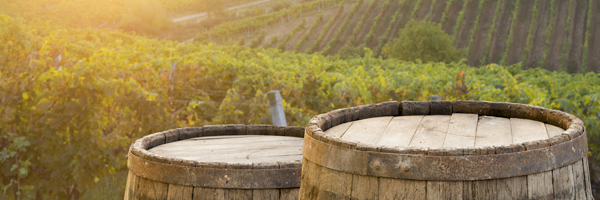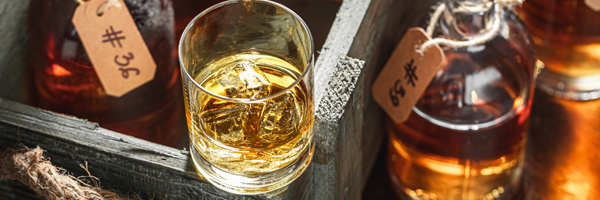Cocktails with a conscience: how mixology is becoming more sustainable
A lofty discussion around sustainability might not sound like the ideal accompaniment to your post-work wind-down G&T, but with our planet on the rocks, we need to suss out what we can serve up on the rocks that has as little impact on the environment as possible.
Whilst we’re all striving to go a little greener (you don’t need to look far to realise the mammoth shift in our eating habits in recent times) most ethical eaters are ignoring the provenance of drinks.
“Today’s consumers are increasingly conscious of the environmental impact of the products they choose – it’s now one of the key purchase factors, but the same mentality doesn’t seem to apply to spirits buying and that’s not right.”
We were inspired to delve deeper into the world of spirits as we ask, ‘can a cocktail save the world?’ Ok, perhaps not quite. But after all, it's these seemingly inconsequential lifestyle modifications such as making your weekend tipple as ethical as possible that can really make a difference.
Cue the sustainable cocktail.
A good starting point. As with most other things in the eco-friendly realm, your sip counts as sustainable when it makes a conscious effort to minimise natural resources, conserve energy, lower carbon-footprint and lessen waste throughout the full lifecycle of its components and processes.
The ultimate goal of any sustainable cocktail is to achieve a totally ‘zero waste’ ethos – to use all ingredients to their full potential. It’s about finding clever ways to upcycle ingredients that are at arm’s length and reuse the ones that would normally be thrown away – which lends itself nicely to getting more adventurous behind the bar anyway! It’s a change of mindset really. Some tips might include:
- Incorporate leftover fruit and vegetables into recipes and dish out any remainders to the kitchen or community. Remember, one man’s waste is another man's treasure
- Recycle previously discarded ingredients (mint stalks, fruit rinds, coffee grounds, cherry pits etc) to make an endless array of flavour infusions for future cocktails or cooking
- Bubbly that’s lost its fizz isn’t a lost cause. Repurposing it before it oxidises can make syrups and more. Nobody will see ‘salvaged Champagne’ on the menu, they’ll just see ‘Champagne’. Win-win
- Remove and dehydrate perishables. The shelf life of a garnish increases enormously if dehydrated. Use shrubs, cordials and syrups instead of fresh fruits, garnishes and herbs
- Peel citrus fruits prior to juicing to use as a garnish and extract the incredibly fragrant essential oils locked inside the peel to cook up Oleo-Saccharum. Impressive, huh? But whilst making syrup out of lemon husks is good, you can take it a step further by entirely swapping out citrus fruits for citrus acids, physical waste and carbon footprint would be reduced significantly
That said, there are trailblazers who are running the game already. London bar White Lyan officially became the world’s first bar to prohibit the use of perishables, fruit and even ice. Or what about no-waste cocktail gurus and friends at Scout Bar who go as far as fermenting leftover ingredients for up to fourteen weeks to create delicious, piquant ‘wasted wines’ in their bid to be more green. Just goes to show it is doable, and not only to raise sustainability credentials, but increase creativity too. Sustainable and innovative? Sounds like music to the ears of the modern consumer.
How many times do we have to say it? Coasters, straws, napkins, cocktail sticks. They end up as fish food. We’ve all seen the video of the poor turtle with the straw being pulled out its nose. It’s true, the plastic straw’s days are numbered but not enough is being done. So, as the COP26 emphasis has reinstated the dialogue around plastic pollution further, we need to bring this into every choice we make on a daily basis, and that includes during cocktail hour.
There’re so many great alternatives to plastic now, all that needs doing is to transition over to more environmentally friendly options.
Same goes for whatever actual drinks we choose to mix with. Researching and choosing brands that give a damn is never going to go amiss. Producers including Bacardi have revealed plans to launch products in paper bottles using a polymer-based technology which is able to biodegrade after 18 months without leaving behind microplastics (a traditional plastic bottle can take up to 400 years to decompose *insert screaming in fear emoji here*)
Read more about sustainable packaging in our blog post on how drinks design is going more than skin deep.
A sure-fire way to raise the bar on the sustainability front is to source locally, seasonally and ensure ingredients are free of pesticides and chemical fertilizers. No footprint ingredients are a must.
And we can’t go without mentioning the hero ingredient. Whatever cocktail is on the menu, there are brands pioneering a fully eco-aware stance without skimping on quality.
Meet masters of the sustainable spirits movement, Discarded Spirits Co. whose ingenious products include Sweet Cascara Vermouth, Grape Skin Vodka and Banana Peel Rum.
“The consumer megatrend that turbocharges our chances here is that the age of disposability is over. We have a zero-waste platform that can take you in any direction when it comes to categories. Establishing a really firm human truth is the beginning. That then provides the ability to play in strategic categories.”
“Discarded Spirits Co. shows that sustainability doesn’t mean sacrifice. Or a product that’s less desirable. Sustainability can be luxury, crafted, creative and imaginative, in packaging, branding and activation.”
Nc’Nean is doing it for the whisky community – and are at the forefront of sustainable production. They have a verified net zero approach, only use organic ingredients, renewable energy powered distillery, have the UK’s first 100% recycled clear glass bottle, and recycle 99.97% of their waste. That’s more than enough to brag about, we think.
It’s also important to pay attention to what some of the big-dogs are doing to recognise the detrimental effects of alcohol manufacturing on the environment too. Plenty of brands are worth seeking out for your eco-friendly drinks trolley.
Our work with Diplomático means we’re showcasing their ethical commitments more and more. At the heart of their business, philosophy and production is a Distilled Consciously Program, which prioritises more responsible business practices now and into the future. Their distillery already uses 80% clean energy, and the wider business is piloting a range of global activations to address food waste in bars and restaurants.
One thing’s for sure, the hospitality sector is a hot bed of waste – too much water, food, plastic and energy can make bars an ecological nightmare. It really is time to join the dots when it comes to spirits and sustainability because it’s no longer a sacrifice for quality.
And remember, whilst it’s easy to go in with the ‘all or nothing’ mentality as we try to harmonise better with nature, it’s about progress not perfection.
So, next time you reach for a night-cap, or a night-starter, see if you can concoct a cocktail with a conscience and get wasted on zero-waste (see what I did there?).
By Mackenzie Duley









